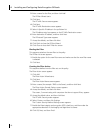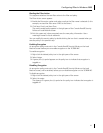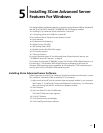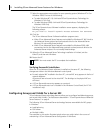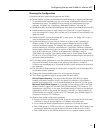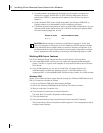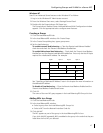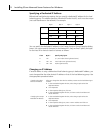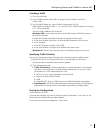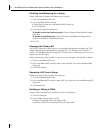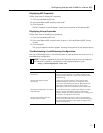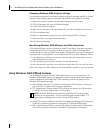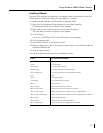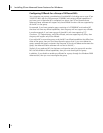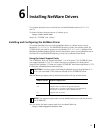
5 Installing 3Com Advanced Server Features For Windows
48
Specifying a Dedicated IP Address
Bidirectional load balancing requires that you specify a dedicated IP address for the load
balancing group. This address specifies a Network ID and a Host ID, and it must be unique
(not used elsewhere on the network). For example:
You can specify the dedicated IP address in the Create Group or Group Properties dialog
boxes. You cannot specify the bytes for the Network ID; they are fixed. Specify the bytes
for the Host ID for various classes of subnets as follows:
Changing an IP Address
If another device is using a bidirectional load balancing group's dedicated IP address, you
must change either the other device’s IP address or that of the load balancing group. Use
the appropriate procedure below:
Byte 1 Byte 2 Byte 3 Byte 4
Class A Network ID Host ID
125 24 1 253
Class B Network ID Host ID
139 25 2 253
Class C Network ID Host ID
193 26 3 253
Class Byte 1 Specify only bytes
A 126 2, 3, and 4 (the three rightmost boxes).
B 128 - 191 3 and 4 (the two rightmost boxes).
C 192 - 223 4 (the rightmost box).
Changing the Other
Device's IP Address
After you change the other device's address, restart receive load balancing as
follows:
1 In the Load Balancing/RSL window, select the group that had the
duplicate address.
2 Click Properties.
3 In the Properties dialog box, click OK.
4 In the Load Balancing/RSL window, click OK to exit the window and
restart Windows.
Changing the Group's
Dedicated IP Address
1 In the Load Balancing/RSL window, select the group that has the
duplicate address.
2 Click Properties.
3 In the Properties dialog box, enter a new IP address and click OK.
4 In the Load Balancing/RSL window, click OK to exit the window and
restart Windows.



